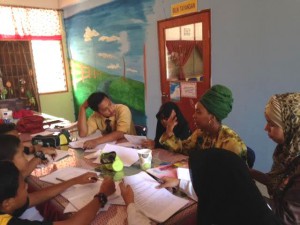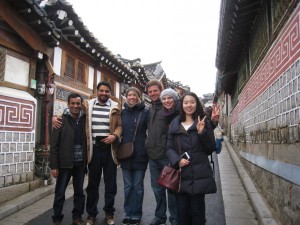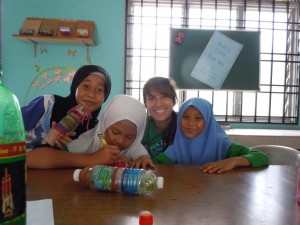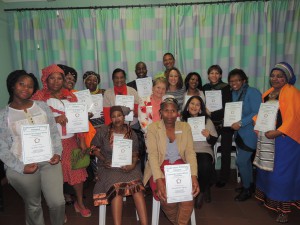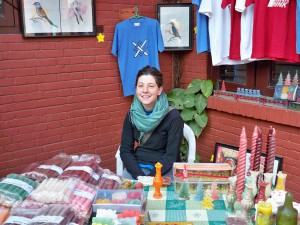
Danielle Preiss, 2008-2009, Nepal, manning a table at a rehab center flea market, during her Fulbright U.S. Student grant
The first thing I remember about preparing to travel to Nepal on a Fulbright U.S. Student grant to study Kathmandu’s drug rehabilitation system was the Nepal Fulbright Commission’s manual. The inch thick book devoted about half of its space to earthquake preparedness. This seemed excessive. I know now of course that it wasn’t.
I began my Fulbright grant in the fall of 2008. According to the manual, Nepal’s earthquake cycle lasts about 75 years, with the last massive quake in 1934. That put my year smack in the middle of when the big one should come. I also now know how agonizingly imprecise earthquake science can be.
Since 2009, I’ve returned to Nepal often. Once you’ve lived in and loved Nepal, the habit is hard to quit. The threat of a massive earthquake hitting was always in the back of my mind, like it undoubtedly was for most Nepalis. I’d walk through Kathmandu’s gorgeous brick alleys in the shadow of concrete high rises wondering which would hold up better (surprisingly it was the high rises), and peer out from viewpoints over the city already heartbroken for the day when buildings would crumble with lives inside.

